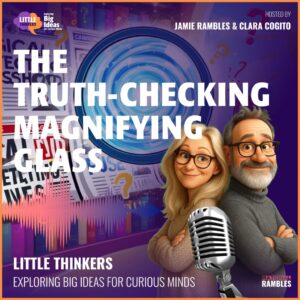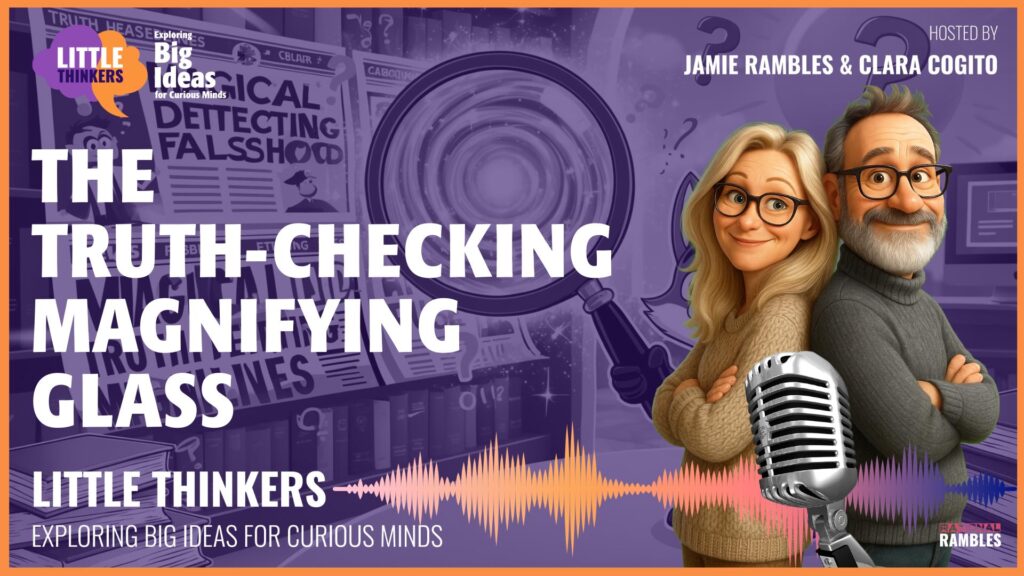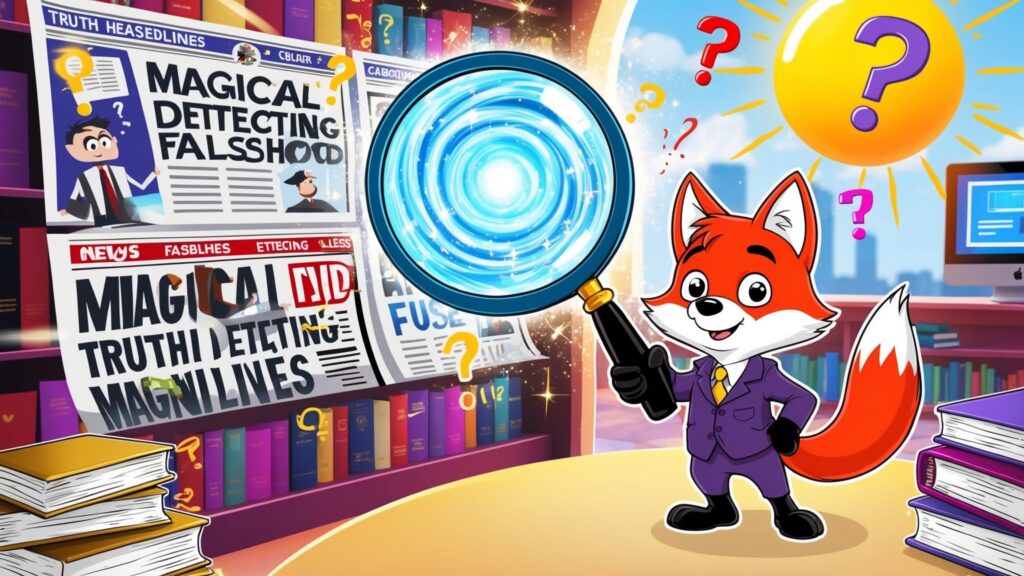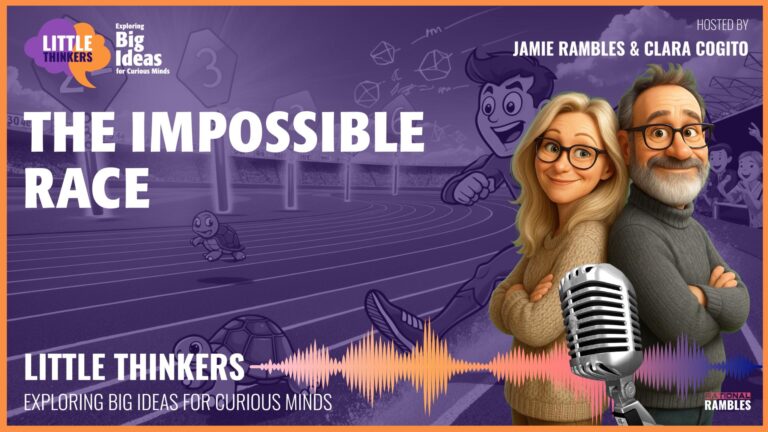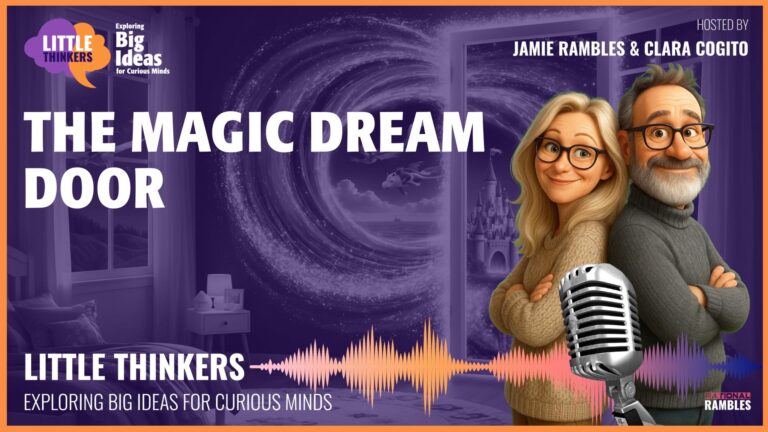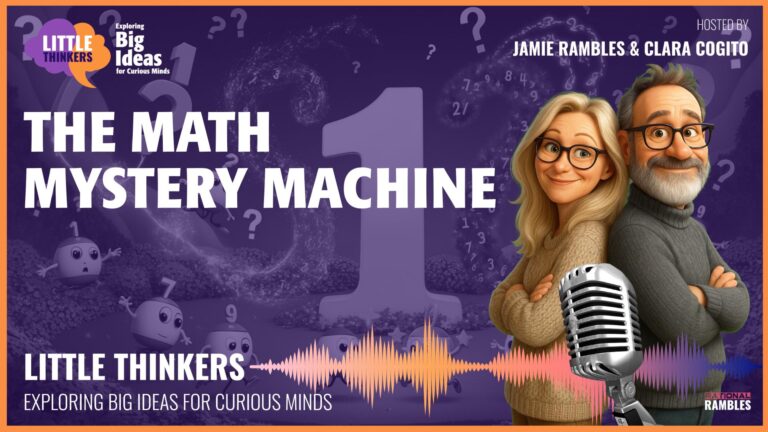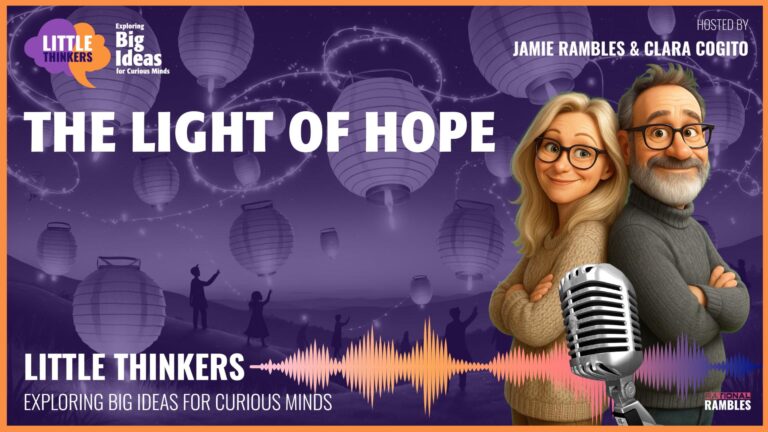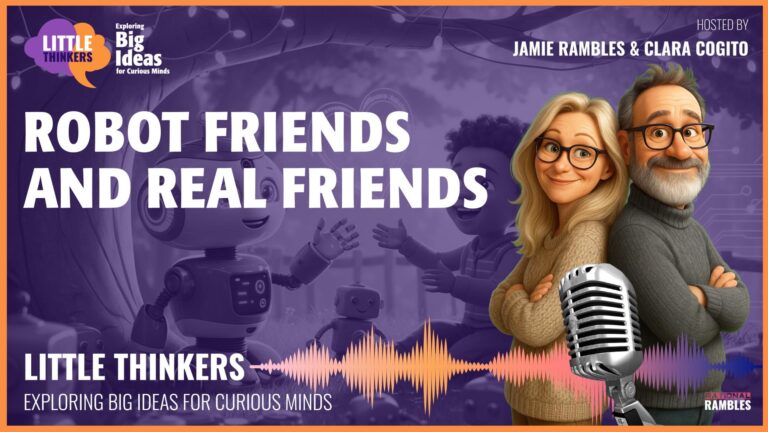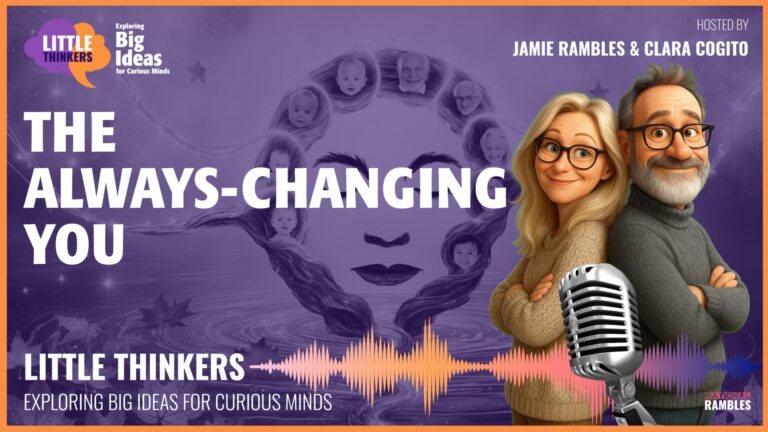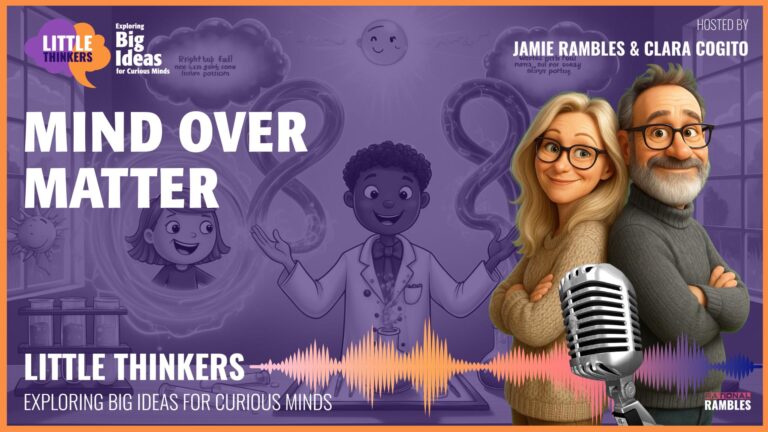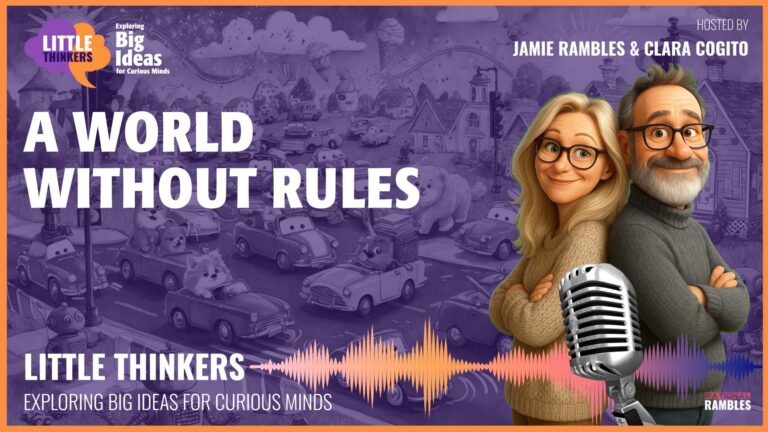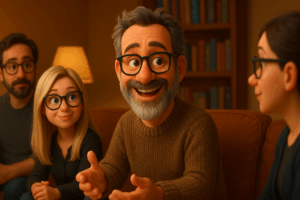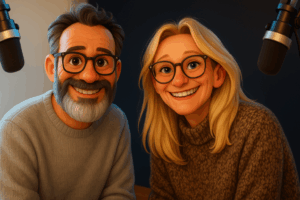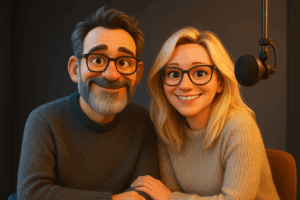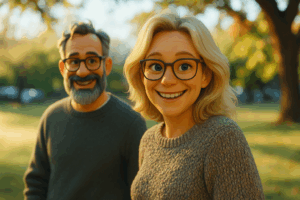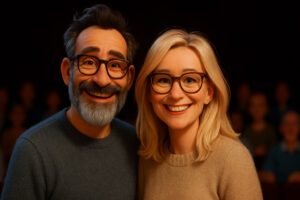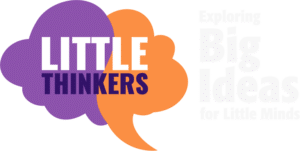The Truth Detective Academy: How to Spot Real from Fake!
What if You Had a Magic Truth-Checking Glass?
🔎Imagine if you had a special magnifying glass that could tell you whether something is true or not! When you point it at something true, it glows with a bright, steady light. But when you look at something that’s not true—FLICKER, FLICKER, FLICKER—it flashes like crazy!
Wouldn’t that be amazing? You could check if your friend really did stay up ALL night playing games, or if cats can actually see in complete darkness (they can’t, by the way—cats see very well in dim light, but not in total darkness).
Truth Detectives in Training
But here’s the thing—we don’t have magic magnifying glasses in real life. So we need to be like truth detectives instead! A truth detective is someone who knows how to figure out what’s real and what’s not.
The internet, TV, friends, and even grown-ups sometimes share information that isn’t completely true. Sometimes they do this by accident, and sometimes they do it on purpose.
Why Do People Share Things That Aren’t True?
- To make a story more exciting (like saying “I caught a fish THIS BIG!” when it was actually smaller)
- To get you to click on something (called “click-bait,” like fishing for your attention)
- To sell you something (like a cereal company saying their sugary cereal is “the healthiest breakfast ever!”)
- Because they believed it too and didn’t check carefully
Your Truth Detective Tool Kit
🚀Even without a magic magnifying glass, you have some super cool detective tools right in your brain! Here are the tools that every good truth detective uses:
Tool #1: The “How Do You Know That?” Question
When someone tells you something surprising, like “There’s a monster living in our school basement!” you can ask, “How do you know that?” A good answer would explain where they got their information.
For example, if your friend says, “My dad can lift a car,” you might ask how they know. If they say, “I saw him use a car jack to lift it when changing a tire,” that makes more sense than if they just say, “Because he’s super strong!”
Tool #2: The Multiple Source Checker
If only one person or website is saying something is true, but nobody else is talking about it, that’s suspicious! Good information usually appears in more than one place.
Let’s say you read online that “Eating ice cream before bed helps you remember your dreams better.” Before believing it, check if you can find the same information in a science book, ask a teacher, or see if other trusted websites say the same thing.
Tool #3: The “Too Amazing” Alert
When something sounds SUPER amazing or EXTREMELY scary, that’s when your brain should go “Hmm, I better check this carefully!”
If someone tells you “This special bracelet will make you able to talk to animals,” your brain should flash a warning light. That sounds too amazing to be true, right? The same goes for scary stories like “This video game makes people disappear!” Wow! That’s so scary it’s probably not real.
Who’s Talking and Why?
Another super important detective skill is thinking about WHO is telling you something and WHY they might be telling you.
Imagine a toy company makes a commercial saying, “This is the most fun toy ever created! Every kid in the world wants one!” Why are they saying that? Because they want you to buy their toy! They have what grown-ups call a “motive” to make their toy sound as amazing as possible.
📓But if your teacher tells you about a fun science experiment, they’re probably just trying to teach you something interesting, not sell you anything.
The Opinion vs. Fact Mystery
Here’s a tricky case for truth detectives: What about opinions?
If someone says, “Chocolate ice cream is the best flavor,” would our magic magnifying glass say that’s true or false? It would probably get very confused and start spinning around!
That’s because opinions aren’t exactly true OR false—they’re what someone thinks or feels. If I say “Blue is the best color” and you say “No, red is the best color,” we’re both just sharing what we like.
A good truth detective knows the difference between:
- Facts: Things that can be proven true or false (like “The Earth is round” or “Dogs have six legs”)
- Opinions: Things that people feel or prefer (like “Summer is the best season” or “Pizza tastes better than sandwiches”)
The Honest Mistake Mystery
🌱Sometimes people share things that aren’t true because they got tricked too! They’re not trying to fool you—they just didn’t check carefully themselves.
Like when your grandma might send you a picture of a rainbow unicorn thinking it’s real, not knowing it was made on a computer with special effects. She wasn’t trying to trick you—she just didn’t know!
🗯️This happens A LOT on the internet. People share pictures, stories, or videos without checking if they’re real first.
The Case of the Suspicious Photo
Imagine you see a picture of a giant dog as big as a horse! Before you believe it, a good truth detective would think:
- Does this look like it could be real?
- Could someone have used a computer to change this picture?
- Are there other pictures of this giant dog from different angles?
- What do experts (like veterinarians) say about how big dogs can grow?
Ask the Experts
Grown-ups like teachers, librarians, and parents have had more practice spotting things that aren’t true. They can be like your detective partners!
If you’re not sure about something you heard or read, you can ask them what they think. You might say, “I heard that there’s a new planet where it rains diamonds. Is that real?”
🚀Different experts know about different things:
- Science questions? Ask a science teacher or look in a science book
- Animal facts? Ask someone who works with animals, like a vet or zookeeper
- History questions? Ask a history teacher or check a history book from the library
It’s OK to Say “I Don’t Know Yet”
🔎One of the MOST important truth detective skills is being able to say, “I don’t know if that’s true yet. I need to check!”
You don’t have to decide right away if something is true or not. You can be a truth investigator and take your time to figure things out.
Real detectives don’t jump to conclusions—they gather clues and evidence before deciding what happened. You can do the same with information!
Practice Your Detective Skills
The next time you hear something surprising, try asking yourself these questions:
- How do I know this is true?
- Where did this information come from?
- Can I find this information in more than one place?
- Does this sound too amazing to be true?
- Who is telling me this and why?
- Is this a fact or an opinion?
- Should I ask an expert about this?
Your Brain: The Best Truth Magnifying Glass
📄The more you practice being a truth detective, the better you get at spotting what’s real and what’s not—even without a magical magnifying glass!
Your brain is actually developing its own truth-sensors every time you ask good questions and check information carefully. It’s like building a truth superpower!
❗And guess what? The world needs good truth detectives like you. When we all get better at figuring out what’s true, we make better decisions and help others do the same.
Your First Truth Detective Mission
Ready for your first mission as a truth detective? The next time you hear something interesting or surprising, use one of your detective tools to check if it’s true. Maybe ask “How do you know that?” or look for the information in a second place.
Remember, being a good truth detective takes practice. But with each mystery you solve, your truth-spotting skills get stronger and stronger!
So what will YOU investigate first with your amazing brain-powered truth detector?
